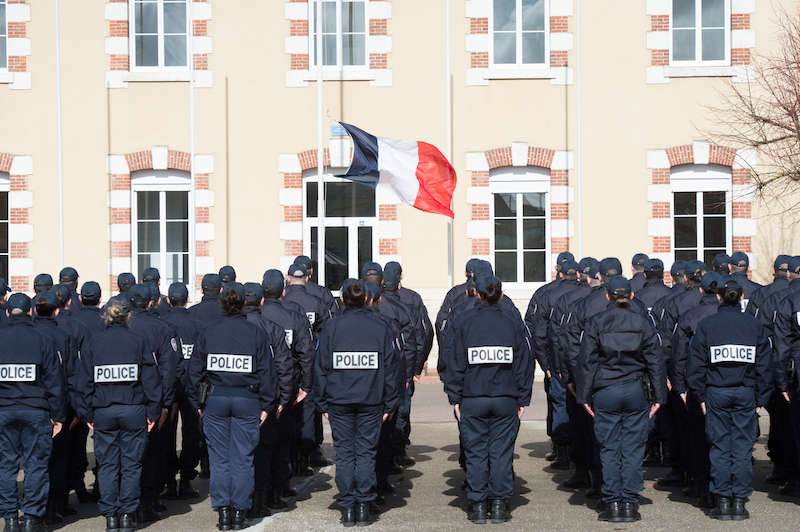EVOFINDER: SEMI-AUTOMATED BALLISTIC COMPARISON SYSTEM
Cooperation project between the Ministry of Europe and Foreign Affairs – Directorate for Security and Defence Cooperation (MEAE-DCSD) and the Serbian and Bosnian police in the fight against arms trafficking in the Western Balkans.
Background and context
This international cooperation which aims to fight the trafficking of small arms and light weapons (SALW) in the Balkans is a practical response arising from the European push towards the region.
Several European summits (e.g., Trieste 2017 and London 2018) have emphasised the need for an open policy towards the Balkans, however, this has only really come about thanks to French and German efforts at the Berlin summit in 2019. President Macron visited Serbia on 15 July, the first presidential visit since 2001 with an aim of “renewing links”, proof, if ever this were needed, of a desire to step up and build long-lasting relationships with the region.
This diplomatic commitment has been translated into a real investment from the French State. MEAE-DCSC suggested the acquisition and subsequent donation of an EVOFINDER®-style semi-automated ballistic identification, monitoring and tracing system to Serbia and Bosnia-Herzegovina. The tool which is already used by the French police will facilitate the exchange of information and data with the Serbian and Bosnian police, combining their efforts in the fight against organised crime.
Given that the Balkans is one of the main sources of arms for organised crime in France, combating this flow is a critical security priority for MEAE. This cooperation programme is an essential element of European security as it offers a direct and efficient response for the police involved in fighting arms trafficking.
The project
CIVIPOL will invite tenders to select a technical solution based on detailed terms of reference. DCSD will manage the strategic and technical aspects of this €800,000 project whilst CIVIPOL will lead the administrative, logistical and financial management.
The device which should be relatively mobile should also be able to analyse ammunition components (cartridges, cases and projectiles) in a few minutes. A semi-automated technical solution which reduces human involvement is preferred in order to improve the consistency and reliability of the data collected by the French, Serbian and Bosnian police forces.
To develop local operators’ knowledge of the system as efficiently as possible, their first two years of training, as well as maintenance of the device, will be undertaken by the supplier. Close collaboration between the French, Serbian and Bosnian police will then allow the local officers to take charge and make full use of the system’s potential.
Delivery of the equipment is planned for December 2020. The contract holder will then have a few weeks to set up the system and train the local operators.
Expected results
The interoperability of the ballistic analysis systems is at the core of this technical cooperation programme. The databases of the partner countries must be able to communicate with each other and exchange data to maximise the efficiency of the investigation services on all sides. The long-term aim is to automate exchanges between the future databases of the beneficiary countries and France through the National Ballistic Identification Database (FNIB – Fichier National d’Identification Balistique).
The project in figures
800 000€
Budget
Chronology
-
2019
Start of the project
-
October 2019
Advertising of the public contract
Last quarter of 2019
-
January 2020
Awarding of public contract
First quarter of 2020
-
July 2020
Delivery of equipment
End of 2020
-
January 2021
Training of operators and setting up of systems
Training of operators and setting up of systems Start of 2021
